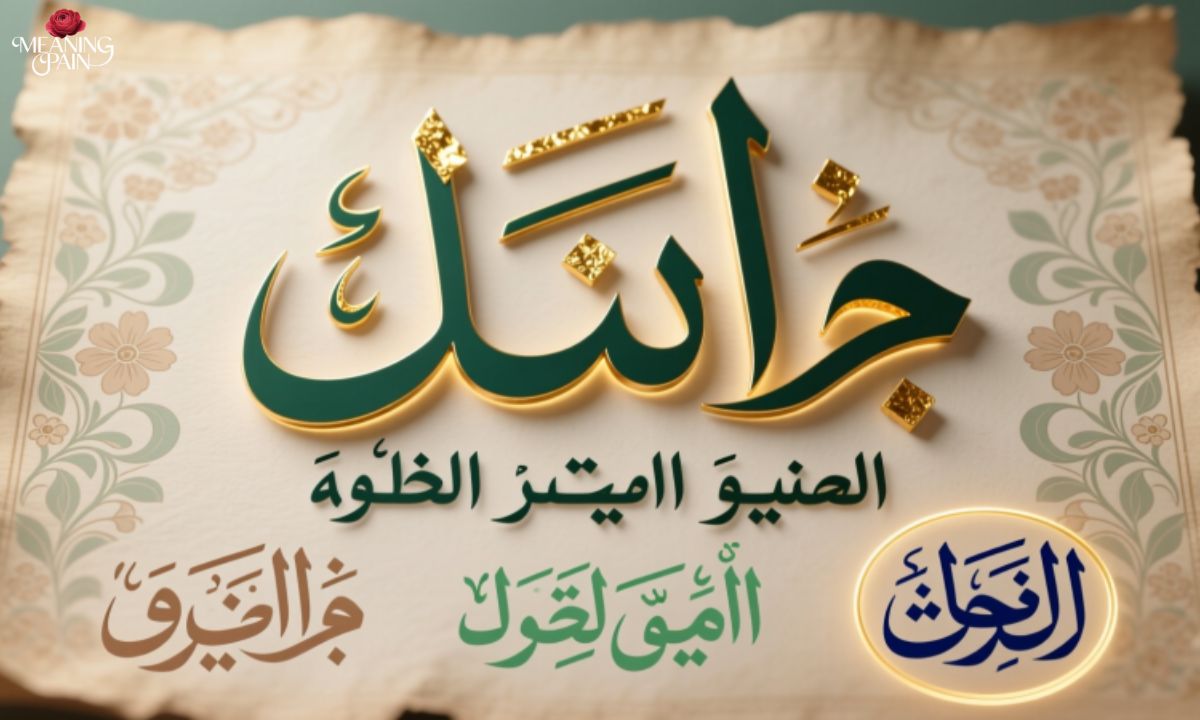The word Maya has a beautiful and significant meaning in Arabic. In Arabic, Maya (مايا) means “water” or “spring water.” This name carries a sense of freshness, purity, and life, as water is essential for all living things.
Maya is a popular name for girls in many Arabic-speaking countries. The name symbolizes something precious and vital, just like water itself. Many parents choose this name because it sounds gentle and has a positive, natural meaning that represents life and clarity.
Maya Name Meaning in Arabic
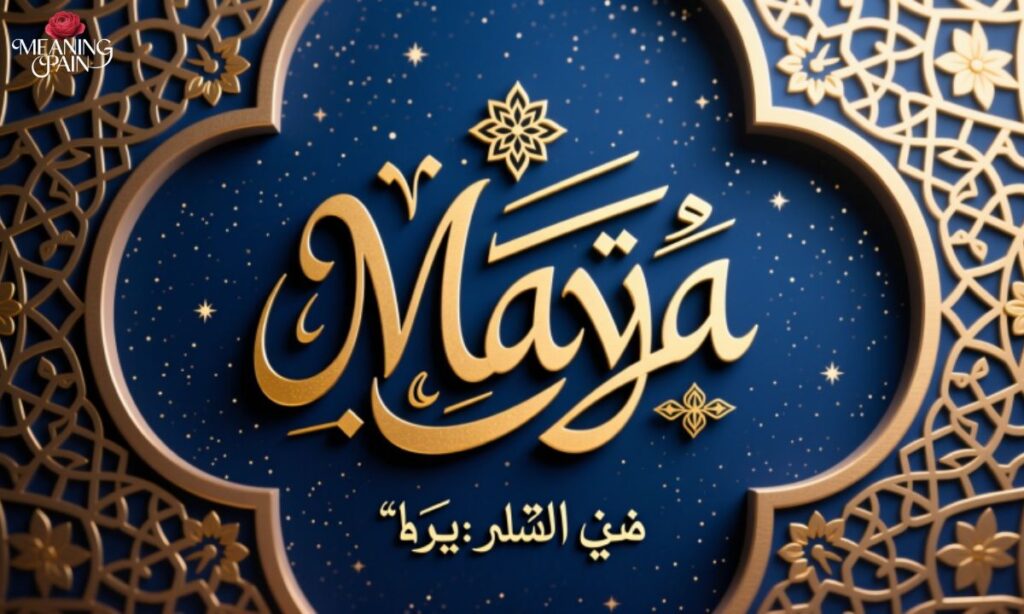
- Maya (مايا) – The name itself, representing beauty and grace
- Meaning (معنى) – The significance or interpretation of the name
- Arabic (عربي) – The language and cultural context
- Name (اسم) – The identifier given to a person
- Beautiful (جميل) – Attractive and pleasing to perceive
- Princess (أميرة) – A royal or noble designation
- Water (ماء) – Life-giving liquid, source of purity
- Spring (ربيع) – Season of renewal and growth
- Illusion (وهم) – Mystical concept in Sanskrit origin
- Translation (ترجمة) – Converting meaning across languages
Maya in Arabic Language
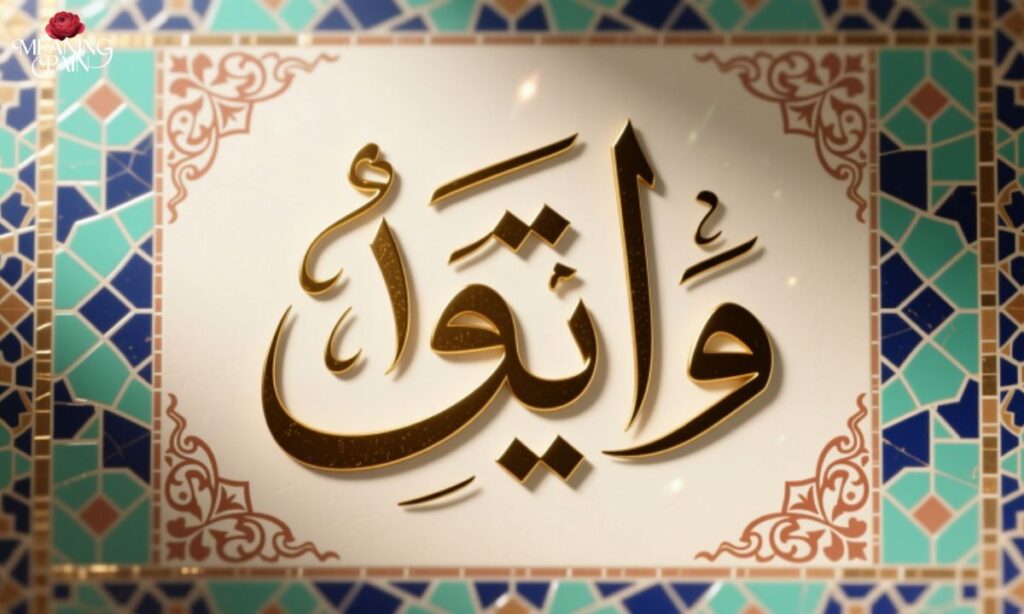
- Language (لغة) – System of communication and expression
- Script (خط) – Written form of Arabic letters
- Pronunciation (نطق) – How the name is spoken
- Feminine (مؤنث) – Gender classification for girls
- Popular (شعبي) – Widely used and recognized
- Modern (حديث) – Contemporary and current usage
- Letters (حروف) – Individual characters: م-ا-ي-ا
- Spelling (تهجئة) – Correct arrangement of letters
- Culture (ثقافة) – Traditions and customs context
- Identity (هوية) – Personal sense of self
Maya Name Meaning in Islam
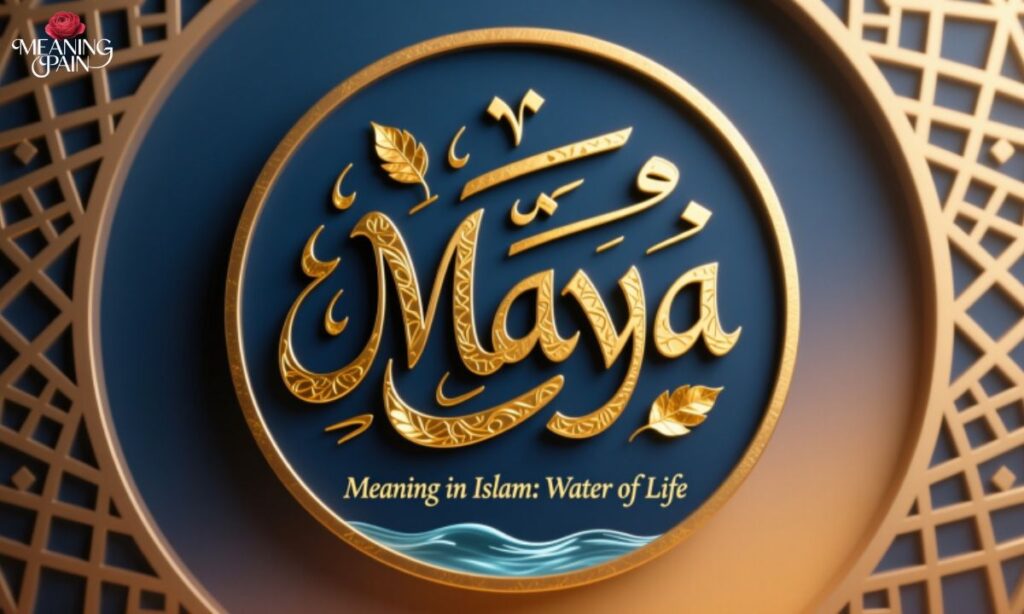
- Islam (إسلام) – The religious and spiritual context
- Islamic (إسلامي) – Relating to Muslim faith
- Permissible (جائز) – Allowed in Islamic law
- Halal (حلال) – Religiously acceptable and pure
- Muslim (مسلم) – Follower of Islamic faith
- Faith (إيمان) – Belief and trust in God
- Religious (ديني) – Spiritual and sacred aspects
- Acceptable (مقبول) – Approved by Islamic scholars
- Blessing (بركة) – Divine favor and goodness
- Pure (طاهر) – Clean and virtuous meaning
- Prophet (نبي) – Messenger of Allah (context reference)
- Quran (قرآن) – Holy book reference for guidance
- Spiritual (روحي) – Inner and divine connection
Origin of the Name Maya
- Origin (أصل) – Source and historical roots
- Etymology (علم أصل الكلمات) – Study of word origins
- Sanskrit (سنسكريتية) – Ancient Indian language source
- Hebrew (عبري) – Another possible linguistic root
- Greek (يوناني) – Alternative cultural origin
- Latin (لاتيني) – Roman language connection
- Ancient (قديم) – Old and historical background
- History (تاريخ) – Past events and development
- International (دولي) – Global usage and recognition
- Universal (عالمي) – Worldwide acceptance and use
- Traditional (تقليدي) – Customary and established usage
- Heritage (تراث) – Cultural legacy and inheritance
- Multicultural (متعدد الثقافات) – Diverse cultural backgrounds
- Global (عالمي) – Worldwide presence and popularity
- Cross-cultural (عبر الثقافات) – Spanning multiple cultures
- Timeless (خالد) – Enduring through ages
- Beloved (محبوب) – Cherished and favored choice
Linguistic Root of Maya in Arabic
- Linguistic (لغوي) – Related to language and grammar
- Root (جذر) – Foundation of word formation
- Phonetics (صوتيات) – Sound patterns and pronunciation
- Morphology (علم الصرف) – Structure of words
- Derivation (اشتقاق) – Formation from original roots
- Borrowed (مستعار) – Adopted from other languages
- Native (أصلي) – Indigenous to Arabic language
- Semantic (دلالي) – Meaning-related aspects
- Cognate (كلمة قريبة) – Related words across languages
- Trilateral (ثلاثي) – Three-letter root system in Arabic
- Vocabulary (مفردات) – Collection of words
- Loanword (كلمة دخيلة) – Word borrowed from another language
- Adaptation (تكييف) – Modification for Arabic use
Using Maya in Arabic Sentences
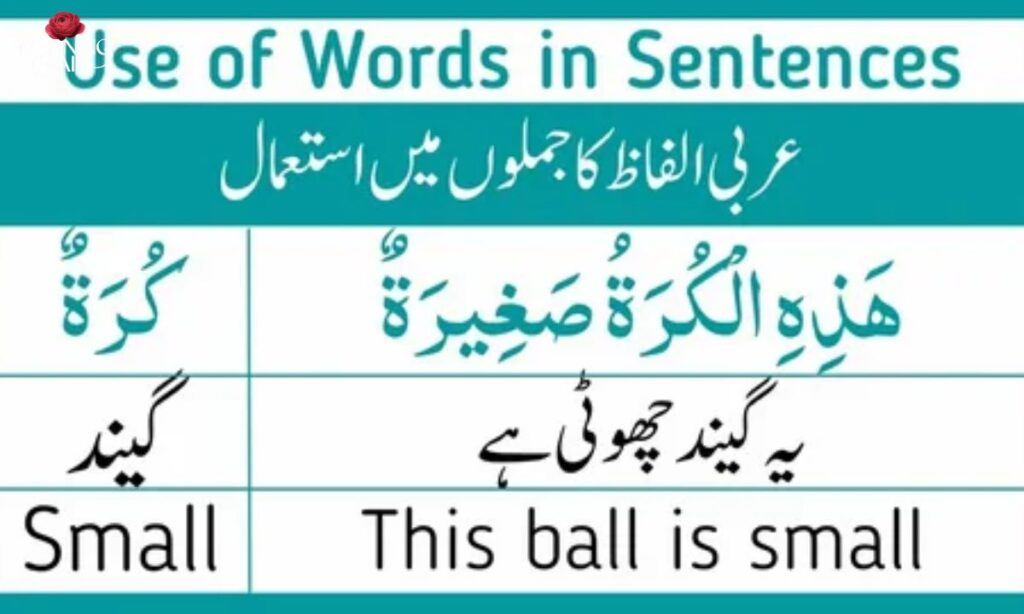
- Sentence (جملة) – Complete grammatical structure
- Grammar (قواعد) – Rules of language construction
- Subject (فاعل) – Person performing the action
- Predicate (خبر) – Information about the subject
- Verb (فعل) – Action word in sentences
- Possessive (ملكية) – Ownership structure (Maya’s)
- Context (سياق) – Surrounding text providing meaning
- Example (مثال) – Sample usage demonstration
- Expression (تعبير) – Phrase or statement
- Conversation (محادثة) – Dialogue using the name
- Introduction (تقديم) – Presenting someone named Maya
- Address (مخاطبة) – Calling or speaking to Maya
- Reference (إشارة) – Mentioning Maya in discussion
Read More: https://meaningpain.com/word-qalbi-meaning-in-arabic/
Examples of Maya in Arabic Context
- Example (نموذج) – Illustrative instance
- Practical (عملي) – Real-world application
- Daily (يومي) – Everyday usage scenarios
- Common (شائع) – Frequently used patterns
- Formal (رسمي) – Official or proper usage
- Informal (غير رسمي) – Casual conversation style
- Literature (أدب) – Written works and texts
- Poetry (شعر) – Artistic verse using names
- Storytelling (سرد القصص) – Narrative context
- Media (وسائل الإعلام) – News and entertainment usage
- Social (اجتماعي) – Community interaction
- Family (عائلة) – Household and relatives context
- School (مدرسة) – Educational setting usage
Cultural Significance of Maya
- Cultural (ثقافي) – Society’s customs and values
- Significance (أهمية) – Importance and relevance
- Tradition (تقليد) – Established customs and practices
- Society (مجتمع) – Community of people
- Values (قيم) – Principles and beliefs
- Symbol (رمز) – Representation of ideals
- Honor (شرف) – Respect and dignity
- Celebration (احتفال) – Joyful occasions using name
- Ceremony (حفل) – Formal events and rituals
- Legacy (إرث) – Passed-down traditions
- Contemporary (معاصر) – Modern-day cultural relevance
Additional Cultural Keywords
- Popularity (شعبية) – Widespread acceptance and use
- Preference (تفضيل) – Choice among parents
- Generation (جيل) – Age group using the name
- Trend (اتجاه) – Current naming patterns
- Regional (إقليمي) – Area-specific usage
- Middle Eastern (شرق أوسطي) – Geographic cultural zone
- Arab World (العالم العربي) – Arabic-speaking countries
- Custom (عرف) – Traditional social practice
- Naming (تسمية) – Process of giving names
- Choice (اختيار) – Selection by parents
Common Misunderstandings of Maya
- Misunderstanding (سوء فهم) – Incorrect interpretation or confusion
- Confusion (ارتباك) – Unclear or mixed meanings
- Misconception (مفهوم خاطئ) – False belief or idea
- Clarification (توضيح) – Explanation to remove doubt
- Mistake (خطأ) – Error in understanding
- Assumption (افتراض) – Belief without verification
- Different (مختلف) – Distinct from other meanings
- Similar (مشابه) – Resembling but not identical
- Distinguish (تمييز) – Recognize the difference
- Correct (صحيح) – Accurate and proper interpretation
- Wrong (خاطئ) – Inaccurate understanding
- Myth (أسطورة) – False story or belief
- Fact (حقيقة) – True and verified information
- Reality (واقع) – Actual truth versus perception
Maya vs Other Meanings
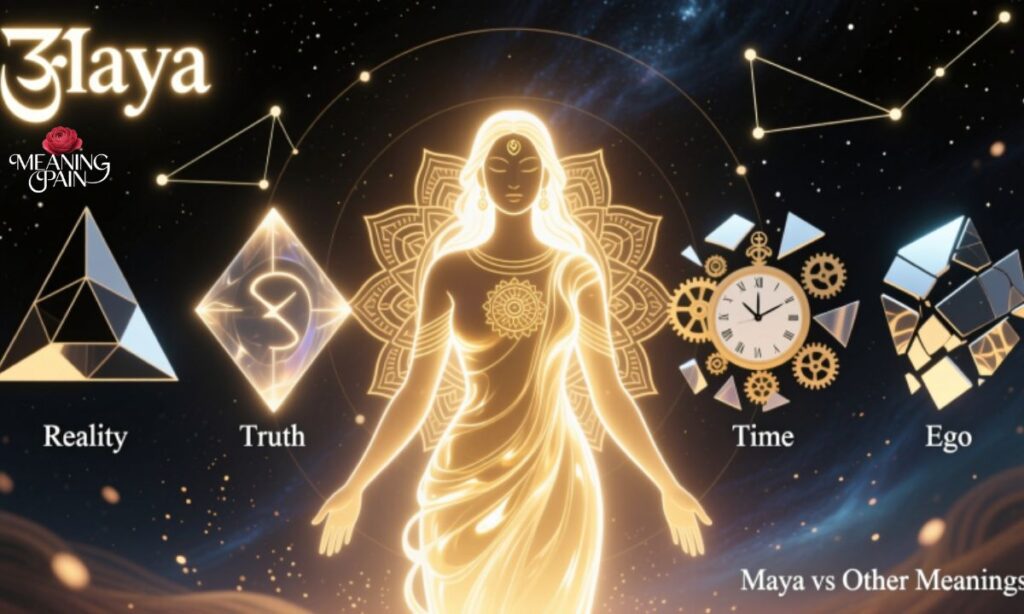
- Versus (مقابل) – Comparison between options
- Comparison (مقارنة) – Examining similarities and differences
- Alternative (بديل) – Other possible interpretations
- Contrast (تباين) – Difference in characteristics
- Variant (متغير) – Different form or version
- Similar Names (أسماء مشابهة) – Names that sound alike
- Homonym (متجانس لفظي) – Same sound, different meaning
- Distinction (فرق) – Clear difference or separation
- Unique (فريد) – One-of-a-kind characteristics
- Multiple (متعدد) – Several meanings or interpretations
- Primary (أساسي) – Main or principal meaning
- Secondary (ثانوي) – Additional or lesser meanings
- Context-dependent (يعتمد على السياق) – Meaning varies by situation
Why Learn the Meaning of Maya
- Learn (تعلم) – Acquire knowledge and understanding
- Knowledge (معرفة) – Information and awareness
- Understanding (فهم) – Comprehension of significance
- Importance (أهمية) – Value and relevance
- Benefit (فائدة) – Advantage of knowing
- Purpose (غرض) – Reason for learning
- Reason (سبب) – Motivation behind studying
- Connection (ارتباط) – Relationship to identity
- Personal (شخصي) – Individual relevance and meaning
- Educational (تعليمي) – Learning and instructional value
- Wisdom (حكمة) – Deep understanding and insight
- Awareness (وعي) – Consciousness of cultural significance
- Appreciation (تقدير) – Valuing the name’s meaning
- Respect (احترام) – Honor for cultural heritage
Final Thoughts on Maya in Arabic
- Final (نهائي) – Concluding or last remarks
- Thoughts (أفكار) – Ideas and reflections
- Conclusion (خاتمة) – Summary of key points
- Summary (ملخص) – Brief overview of content
- Reflection (تأمل) – Thoughtful consideration
- Insight (بصيرة) – Deep understanding gained
- Takeaway (الفكرة الرئيسية) – Key message to remember
- Recommendation (توصية) – Suggestion or advice
- Perspective (منظور) – Viewpoint or angle
Bonus Keywords for Comprehensive Coverage:
- Memorable (لا يُنسى) – Easy to remember
- Elegant (أنيق) – Graceful and refined
- Timeless (أبدي) – Never going out of style
- Versatile (متعدد الاستخدامات) – Adaptable across cultures
- Harmonious (متناغم) – Pleasing sound and flow
- Positive (إيجابي) – Favorable connotations
- Empowering (تمكيني) – Giving strength and confidence
- Meaningful (ذو معنى) – Full of significance
- Cherished (عزيز) – Valued and treasured
- Enduring (دائم) – Lasting through time
Frequently Asked Questions
What does Maya mean in Arabic?
Maya (مايا) in Arabic primarily means “water” or “spring”, symbolizing life and purity. It also represents beauty, grace, and princess in various Arabic contexts.
What is the Arabic version of Maya?
The Arabic version of Maya is written as مايا and pronounced the same way. It’s a popular feminine name used across Arab countries with beautiful meanings.
What is the meaning of Maia in Arabic?
Maia (مايا) is essentially the same as Maya in Arabic, meaning “water”, “spring”, or “princess”. Both spellings are acceptable and carry identical meanings in Arabic culture.
Does Maya mean water in Arabic?
Yes, Maya (مايا) can mean “water” (ماء – ma’) in Arabic, though it’s more accurately associated with spring or flowing water. The name symbolizes life, purity, and renewal in Arabic tradition.
Is Mila an Arabic name?
Mila (ميلا) is not originally an Arabic name; it has Slavic and Spanish origins meaning “dear” or “gracious”. However, it’s increasingly used in Arab countries as a modern, international name choice.
Conclusion
The name Maya (مایا) in Arabic beautifully represents water, purity, and grace, making it a cherished choice across Arab cultures. Its simple pronunciation, positive meaning, and Islamic permissibility have made it timeless and universally loved.
Learning Maya’s Arabic significance connects us to rich linguistic heritage and cultural values. This elegant name transcends borders, offering parents a meaningful option that honors tradition while embracing modern appeal, truly embodying beauty in both sound and substance.

James Dean was an American actor and cultural icon of teenage rebellion, best known for Rebel Without a Cause, Giant, and East of Eden.
